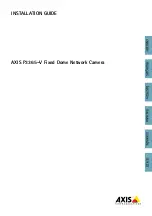
1-15
Configuring the Maximum Number of Attempts to Send an NS Message for DAD
An interface sends a neighbor solicitation (NS) message for duplicate address detection after acquiring
an IPv6 address. If the interface does not receive a response within a specified time (determined by the
ipv6 nd ns retrans-timer
command), it continues to send an NS message. If it still does not receive a
response after the number of sent attempts reaches a configurable threshold, the acquired address is
considered usable.
Follow these steps to configure the attempts to send an NS message for DAD:
To do…
Use the command…
Remarks
Enter system view
system-view
—
Enter interface view
interface interface-type
interface-number
—
Configure the number of
attempts to send an NS
message for DAD
ipv6 nd dad attempts value
Optional
1 by default. When the
value
argument is set to 0, DAD is
disabled.
Configuring PMTU Discovery
Configuring a Static PMTU for a Specified IPv6 Address
You can configure a static PMTU for a specified destination IPv6 address. When a source host sends a
packet through an interface, it compares the interface MTU with the static PMTU of the specified
destination IPv6 address. If the packet size is larger than the smaller one between the two values, the
host fragments the packet according to the smaller value.
Follow these steps to configure a static PMTU for a specified address:
To do…
Use the command…
Remarks
Enter system view
system-view
—
Configure a static PMTU for a
specified IPv6 address
ipv6 pathmtu
ipv6-address
[
value
]
Required
By default, no static PMTU is
configured.
Configuring the Aging Time for Dynamic PMTUs
After the path MTU from a source host to a destination host is dynamically determined (refer to
IPv6
PMTU Discovery
), the source host sends subsequent packets to the destination host on basis of this
MTU. After the aging time expires, the dynamic PMTU is removed and the source host re-determines a
dynamic path MTU through the PMTU mechanism.
The aging time is invalid for a static PMTU.
















































